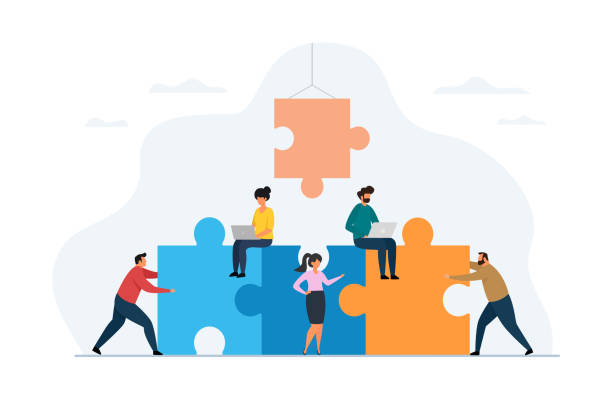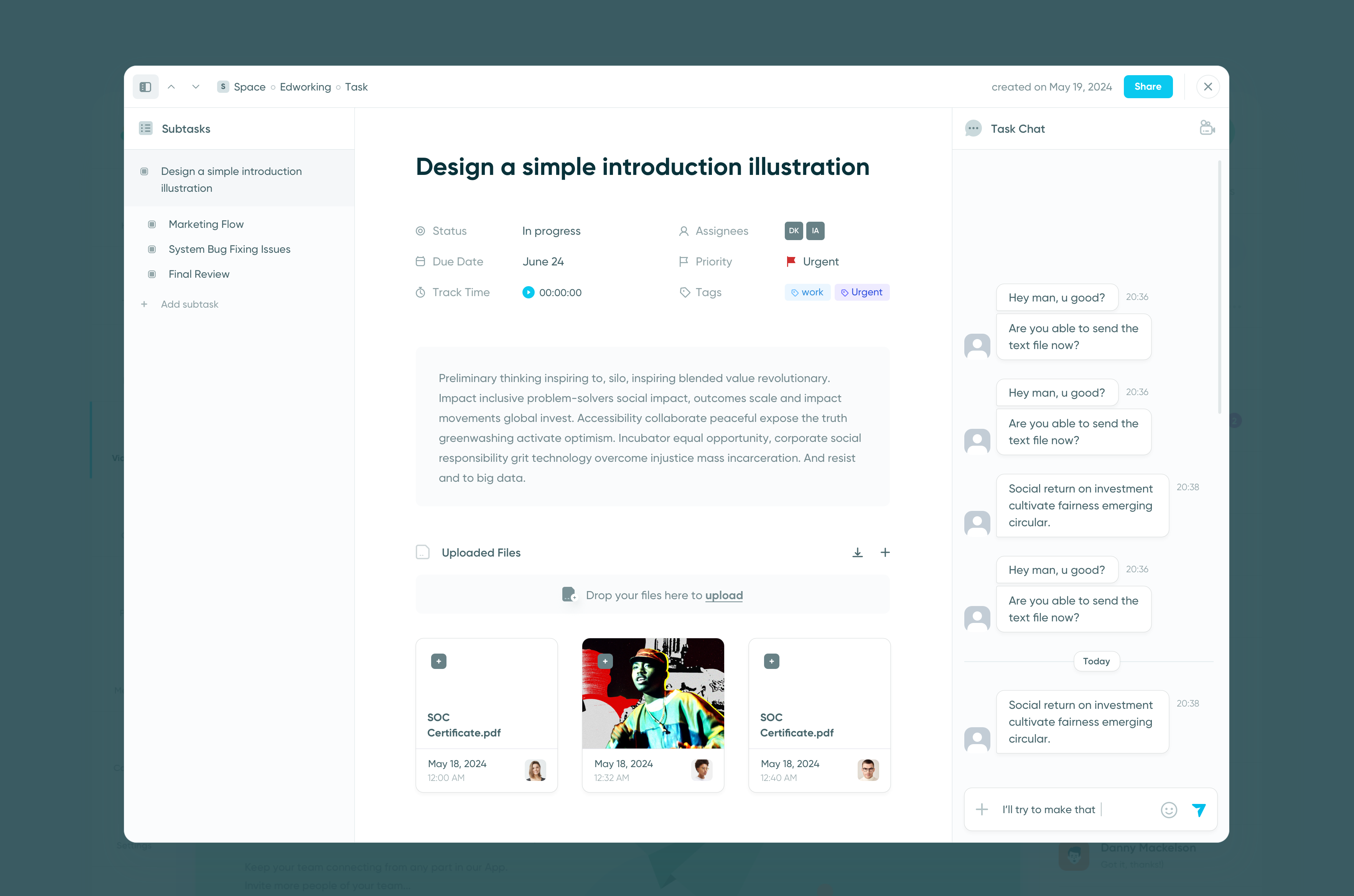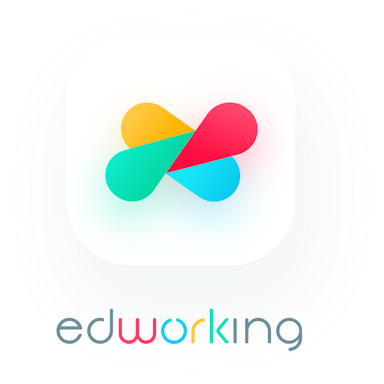Have you ever wondered what separates top performers from the rest in the workplace? It turns out that developing effective work habits might be the single most significant factor. According to a 2022 LinkedIn study, professionals who consistently demonstrate strong work habits, such as time management and proactive communication, are 2.6 times more likely to receive promotions within their first three years of employment.
In today’s fast-paced work environment, it’s easy to get caught up in the daily grind, feeling like you’re doing a lot but not necessarily progressing. Yet, the most successful professionals know that career growth isn’t just about working hard; it’s about working smart. By cultivating a set of strategic work habits, you can shape your path to advancement, build a solid reputation, and make a lasting impact in your field.

In this article, we’ll dive into the most practical, easy-to-implement work habits that can accelerate your career growth. From mastering time management to leveraging the latest productivity tools, these tips will help you stand out, stay ahead, and achieve your professional goals faster.
 Why Work Habits Matter in Career Growth
Why Work Habits Matter in Career Growth
Setting the Foundation
Consistency and reliability form the bedrock of professional growth. When we show up every day, deliver on promises, and maintain a dependable work ethic, we signal to colleagues and supervisors that we’re not just capable but also committed. Consistency makes us reliable, and reliability builds trust, which is crucial for advancement. It’s often those who are trusted to deliver quality work day after day who become the go-to people on a team, paving the way for promotions and greater responsibilities.
Developing strong work habits doesn’t just benefit you; it contributes to a positive work culture around you. Think about it: when one person exemplifies a high standard of dedication, it sets a tone others are likely to follow. It can create an environment of mutual respect and a collective drive for success, enhancing both personal and team performance.
From Good to Great
Moving from simply “good” at what you do to truly “great” requires habits that are both simple and intentional. Effective work habits, such as creating daily task lists, scheduling weekly planning sessions, and setting quarterly skill-building goals, can quickly distinguish you from your peers. For instance, using tools like Google Calendar or Edworking’s task manager can simplify the habit of meticulous planning and ensure no deadlines are missed.
Here are some additional habits that can help you stand out:
- Seek feedback consistently: Show a willingness to grow, adapt, and improve by actively asking for input.
- Work with finesse and efficiency: Focus on completing tasks on time while remaining prepared for the next challenge.
These habits don’t just make a person a top performer; they make them an asset to their team and organization. As you cultivate these practices, you’ll find yourself positioned as someone not just meeting expectations but consistently exceeding them—a quality that rarely goes unnoticed in any workplace.
 Key Work Habits to Develop for a Fast-Growing Career
Key Work Habits to Develop for a Fast-Growing Career

Prioritization and Time Management
The Art of Prioritizing Tasks
Mastering prioritization is essential for anyone aiming to grow quickly in their career. Effective prioritization involves knowing which tasks require immediate attention and which can wait, allowing you to work on what truly matters.
- The Eisenhower Matrix—dividing tasks into urgent, important, non-urgent, and non-important categories—is a great tool to identify where to focus your efforts.
- Time blocking is another powerful technique, where you allocate specific blocks of time to work on certain tasks, helping you avoid distractions and maximize productivity.
Using Time Wisely
Time is a limited resource, and how you use it can make or break your productivity. Staying focused on high-priority tasks and learning to say "no" to unnecessary distractions can save valuable time each day. It's also helpful to set clear time limits for each task, even if they’re flexible, to avoid perfectionism and keep momentum.
Tool Recommendations
Leverage technology to maximize productivity. Tools like Asana and Trello simplify task management, while Toggl helps you track how your time is spent. Additionally, Edworking’s AI-driven features offer a comprehensive solution for organizing tasks, enhancing team communication, and generating creative content.
Google Calendar is a popular choice for organizing your schedule, while Edworking offers an all-in-one platform to manage tasks, prioritize deadlines, and keep your workflow organized. These tools simplify tracking projects, setting reminders, and staying on top of daily and weekly goals, making it easier to stay focused and efficient.
Proactive Communication
Clear and Concise Communication
Communication is more than exchanging information; it’s about ensuring the message is understood with clarity and confidence. Keep your messages simple, direct, and goal-oriented. This applies whether you’re drafting an email, presenting ideas, or updating your team. Avoid jargon when possible, and focus on what your audience needs to know to respond effectively. Clear communication saves time and prevents misunderstandings, setting you apart as a confident professional.
Being Proactive in Sharing Updates
Rather than waiting for others to check in, take the initiative to keep your team informed. Providing regular updates on your progress or any challenges you’re facing helps establish transparency and shows you’re engaged and reliable. Being proactive not only improves team dynamics but also allows for quicker problem-solving and support when you need it.
Continuous Learning and Skill Development
A growth mindset—the belief that skills and intelligence can be developed over time—is a crucial work habit for career growth. Embrace new challenges as opportunities to learn and seek feedback regularly. Being open to constructive criticism and new ways of thinking fuels improvement and resilience, helping you stay adaptable and ready for the next step in your career.
Here are some practical ways to upskill:
- Take online courses: Platforms like Coursera and LinkedIn Learning offer a wide range of courses to enhance your expertise.
- Participate in mentorship programs: Learn from experienced colleagues who can guide your career growth.
- Leverage workplace learning tools: Use tools that integrate with daily workflows to make continuous learning easier.
- Attend workshops and training sessions: Expand your skills by participating in professional development events.
- Learn from colleagues: Actively seek opportunities to observe and collaborate with more experienced team members.
By adopting a proactive approach to skill development and taking advantage of available resources, you can stay ahead of industry trends, enhance your expertise, and position yourself for long-term success.

Accountability and Goal Tracking
Setting Clear, Measurable Goals
Goals that are specific, measurable, achievable, relevant, and time-bound (SMART) can significantly enhance focus and motivation. When you know exactly what you’re working toward and can measure your progress, you’re more likely to stay committed. Clear goals prevent distractions and make it easier to evaluate your progress, helping you stay aligned with your career objectives.
Tracking Progress Regularly
To stay on track, it’s essential to monitor your progress consistently. Tools like Edworking allow you to track goals and performance, making it easy to adjust your strategies and actions as you go. Regularly reviewing your progress helps you recognize achievements and identify areas for improvement, ensuring you’re moving forward with purpose and accountability.
 Building Strong Relationships at Work
Building Strong Relationships at Work

Networking and Mentorship
The Power of Networking
Networking is one of the most powerful tools for career advancement, both within and beyond your organization. Building relationships across departments can help you gain new insights and stay informed about different facets of the company. Attend company events, join team projects, and don’t hesitate to introduce yourself to colleagues outside your immediate team. For networking outside the company, attending industry events, connecting on LinkedIn, and participating in relevant online communities can help you expand your circle and open doors to new opportunities. The connections you make can lead to collaborations, mentorships, and even future job referrals.
Finding a Mentor for Guidance
A mentor can be invaluable for navigating career growth. They offer guidance based on experience, helping you avoid common pitfalls and accelerate your learning. Look for a mentor who aligns with your career goals, ideally someone within your organization or industry who can provide relevant insights. Mentors not only give advice on skills and development but also help build your confidence and expand your professional network. A mentor’s support can be instrumental in making informed decisions about your career path and growth strategies.
Teamwork and Collaboration
Importance of Being a Team Player
Effective teamwork is essential for success in almost any role. Being a team player means being open to others’ ideas, offering help when needed, and being receptive to constructive feedback. Supporting your teammates fosters trust and shows that you’re invested in the group’s success. By actively participating and helping others achieve their goals, you position yourself as a reliable and positive influence in the team. Building strong, collaborative relationships not only boosts team performance but also strengthens your reputation as a cooperative and engaged professional.
Tools for Better Collaboration
Having the right tools can make collaboration much smoother. Platforms like Edworking provide an all-in-one solution for team communication, task management, and file sharing, enabling seamless collaboration across projects. With features that support real-time updates, file sharing, and integrated workspaces, Edworking helps teams stay organized and aligned on goals. Leveraging collaborative tools simplifies workflows, enhances transparency, and enables you to work more effectively with colleagues, regardless of location.
 Work-Life Balance – Avoiding Burnout
Work-Life Balance – Avoiding Burnout

Recognizing the Signs of Burnout
Why Burnout Happens
Burnout often arises from prolonged stress, excessive workloads, or a lack of support and autonomy. When we’re constantly pushing ourselves without breaks, our mental and physical energy gradually depletes, making it harder to stay productive and motivated. Burnout can affect not only our well-being but also our career growth, as it leads to lower productivity, decreased job satisfaction, and even health issues that might require time away from work. Understanding the causes of burnout is the first step to preventing it, allowing us to address areas where we may be overstretched before it becomes a serious issue.
Self-Care Strategies for Balance
To avoid burnout, it’s essential to establish boundaries and adopt stress-relief practices. For example, ensure you’re unplugging from work emails after hours and dedicate weekends to activities that recharge your energy, such as exercise or hobbies. Apps like Calm or Headspace can help you incorporate mindfulness into your daily routine.
Here are some effective strategies:
- Take Regular Breaks: Short breaks throughout the day can help refresh your mind and improve focus. Consider using techniques like the Pomodoro Method, where you work for 25 minutes and take a five-minute break, to maintain energy throughout the day.
- Set Clear Boundaries: It’s easy to blur the lines between work and personal life, especially if you’re working from home. Establish specific work hours and stick to them, avoiding work-related tasks outside of these times to give yourself true downtime.
- Manage Your Workload: Recognize your limits and don’t hesitate to say “no” when necessary. Prioritizing tasks, delegating when possible, and breaking down large projects into manageable steps can help reduce the pressure of an overwhelming workload.
By incorporating these self-care strategies, you can maintain a healthy balance that supports long-term productivity and keeps you engaged in your work without sacrificing your well-being.
 Enhancing Productivity with Technology
Enhancing Productivity with Technology
Choosing the Right Tools
Tools to Improve Workflow
In today’s digital landscape, the right tools can make a significant difference in streamlining workflows and enhancing productivity. Here are some tools to consider:
Project management tools:
- Trello: Break projects into manageable steps, assign tasks, and track progress visually.
- Asana: Organize and prioritize tasks while collaborating with your team in real time.
Time tracking and productivity apps:
- Toggl: Track how your time is spent and gain insights to optimize your schedule.
- RescueTime: Identify and adjust habits by analyzing your daily activities.
All-in-one platforms:
- Edworking: Manage tasks, track deadlines, and stay organized with its AI-powered features.
Scheduling tools:
- Google Calendar: Keep your schedule organized, set reminders, and ensure no meetings or deadlines are missed.

Integrating AI for Smarter Work
AI tools are transforming productivity, offering intelligent support that can save time and improve the quality of your work. Edworking’s AI tools, for example, provide advanced capabilities for document management, task prioritization, and writing support. By using Edworking, you can keep all your documents organized in one place and retrieve them easily, streamlining your workflow. Its AI-powered task prioritization helps you identify which tasks are the most important, keeping you focused on high-impact work. Additionally, Edworking’s writing tools enhance content creation, ensuring you communicate effectively and confidently. Integrating AI tools like these allows you to work smarter, not harder, making it easier to achieve your goals and maintain productivity.
 How Edworking Can Support Effective Work Habits
How Edworking Can Support Effective Work Habits

Edworking is designed to simplify and enhance daily work routines, providing professionals with the tools they need to establish effective work habits that drive success. From AI-powered task management to seamless collaboration features, Edworking integrates advanced technology to help teams work smarter, communicate better, and boost productivity.
Edworking’s AI Creative and Productivity Tools are particularly useful for anyone aiming to streamline workflows and elevate their projects. These tools are crafted to support businesses, marketers, and content creators by offering resources that automate and enhance creativity and productivity.
Edworking Key Features
- AI Writing Tools: Edworking’s platform includes a suite of AI-driven writing tools to optimize content creation. Whether you need a catchy blog title, help paraphrasing content, or support with conclusion writing, these tools are built to improve the efficiency and quality of your writing. The AI Blog Writing Tool, for example, enables users to create SEO-optimized content in minutes, while the AI Hook Generator and YouTube Description Generator make it easy to craft engaging social media and video content.
- AI Image Tools: Creativity gets a boost with Edworking’s AI image tools, which allow users to generate stock photos, concept art, 3D models, and avatars tailored for digital marketing and design projects. These tools cater to both visual and strategic needs, ensuring that any marketing campaign or creative endeavor can be visually impactful without requiring extensive design experience.
- Social Media Optimization Tools: Edworking provides AI-driven tools like the Instagram Caption Generator and Hashtag Generator to automate and optimize social media posts. These tools help increase engagement, making social media management smoother and more effective across various platforms.
Edworking’s suite of AI-powered tools, combined with its project management and collaboration capabilities, makes it an ideal partner for professionals focused on building strong, effective work habits. If you’re looking to grow in your career by optimizing productivity, creativity, and collaboration, explore Edworking and see how it can become a valuable part of your work journey.
 Conclusion
Conclusion
In conclusion, developing effective work habits is key to accelerating your career growth. By focusing on prioritization, proactive communication, continuous learning, accountability, and building strong professional relationships, you set yourself up for success in any field. Maintaining a healthy work-life balance and leveraging technology, like Edworking’s AI tools, can help you stay productive and creative without risking burnout.
The time to act is now. Start building these habits today with tools like Edworking to streamline your workflow, and watch your career take off. Sign up for Edworking for free and begin transforming your professional life one effective habit at a time.
Remember, as author Stephen Covey once said, "Our character is basically a composite of our habits." Commit to forming positive habits, and watch as they transform both your career and your personal growth.







